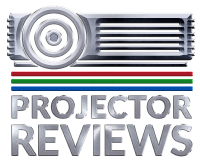- Optoma HD803 Home Theater Projectors
- Optoma HD803 Highlights
- Optoma HD803 Home Theater Projector: Physical Tour
- Optoma HD803: 1080p Home Theater Projector Review - Image Quality
- Optoma HD803: 1080p Home Theater Projector Review - Image Quality - 2
- Optoma HD803: 1080p Home Theater Projector Review - Image Quality - 3
- Optoma HD803: 1080p Home Theater Projector Review - Image Quality - 4
- Optoma HD803: 1080p Home Theater Projector Review - Image Quality - 5
- Optoma HD803: 1080p Home Theater Projector Review - Image Quality - 6
- Optoma HD803: 1080p Home Theater Projector Review - Image Quality - 7
- Optoma HD803: 1080p Home Theater Projector Review - Image Quality - 8
- Optoma HD803 Home Theater Projector Review - General Performance
- Optoma HD803 Home Theater Projector Review - General Performance - 2
- Optoma HD803 Home Theater Projector Review - General Performance - 3
- Optoma HD803 Home Theater Projector Review - General Performance - 4
- Optoma HD803 Home Theater Projector Review - General Performance - 5
- Optoma HD803 Home Theater Projector Review - General Performance - 6
- Optoma HD803 Home Theater Projector Review - General Performance - 7
- The Optoma HD803 Projector Review - Warranty
- Optoma HD803 DLP Projector: Summary
- Optoma HD803 projector, Pros, Cons, and Typical Capabilities
- Optoma HD803 Projector Specifications
- Home
- All Reviews
- By Category
- By Manufacturer
- Best Projectors
- Best Projectors By Category
- Best Projectors On Amazon
- Best 4K Projectors
- Best Ultra Short Throw Projectors
- Best Laser TVs
- Best Gaming Projectors
- Best Home Theater Projectors
- Best Projectors Under $1,000
- Best Projectors Under $500
- Best Portable Projectors
- Best Outdoor Projectors
- Best Bright Budget-Friendly Outdoor Projectors
- Best Battery Powered Outdoor Projectors
- Best Outdoor Projection Screens
- Industry News
- Reports
- Projector Manufacturers
- Manufacturer Terminology
- Manufacturers
- Recent Articles
- Custom Integration
- Projection Terms
- Projector Manufacturers Categories
- Videos
- Blog
Close
Menu
- All Reviews
- By Category
- By Manufacturer
- Best Projectors By Category
- Best Projectors On Amazon
- Best 4K Projectors
- Best Ultra Short Throw Projectors
- Best Laser TVs
- Best Gaming Projectors
- Best Home Theater Projectors
- Best Projectors Under $1,000
- Best Projectors Under $500
- Best Portable Projectors
- Best Outdoor Projectors
- Best Bright Budget-Friendly Outdoor Projectors
- Best Battery Powered Outdoor Projectors
- Best Outdoor Projection Screens
- Latest News
- Reports & Guides
- Manufacturers
- Articles
- Custom Integration
- Projection Terms
- Blog
close

